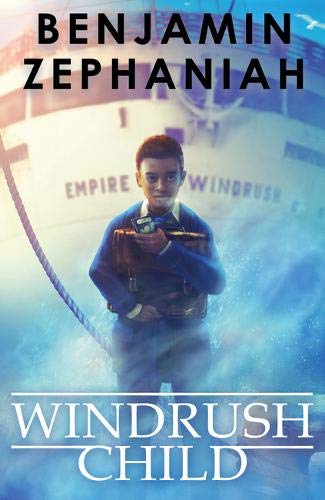Review: Windrush Child by Benjamin Zephaniah
Leonard was just a baby when dad Morris voyaged to England on the Empire Windrush ten years earlier, to support his family working in the imperial motherland by invitation of the British government.
But his blissful course is diverted when Morris asks the family to join him in Manchester, leading to a turbulent adventure for Leonard. Try as he might to adjust and fit in, England is just one huge disappointment. As well as the bland food and cold weather, shocking racial abuse affects Leonard deeply, and he yearns to return to his beloved grandma, and tranquil life back home.
Reading this powerful mid-grade historical fiction, the latest title in Scholastic's Voices series, is a refreshing yet emotional experience. Benjamin Zephaniah speaks unsaid truths about what life was like for the children of the Windrush generation, amalgamating his first-hand experiences with the factual accounts of his contemporaries to create fictional Leonard's captivating story.
Zephaniah's non-flowery descriptions are full of subtle observations of people, places, and events as seen through a child's eyes. Jamaican speech patterns add authenticity to the dialogue, emphasising the disconnect between Leonard and his white peers who not only think he sounds funny but looks funny, too.
The writing is brilliantly uncompromising in a way that makes the topics of racism and discrimination accessible for older children. The author's prologue prepares readers for offensive words in the text — 'golliwog' probably being the strongest example. Teachers and parents should judge the suitability of the text based on the maturity levels of individual children/classes, though I will say the author's use of this highly emotive language is restrained, precise, and contextualised.
The book is well-researched and balanced. Zephaniah includes significant events, pre- and post 1948, such as WWII and the 1958 Notting Hill race riots, explaining the impact of these events on the mood of white and Black British citizens. And, despite all the racial hostility, hope comes in the form of Leonard’s friendships with his Irish neighbours and discovery that music is a great form of escapism.
Zephaniah encourages us to consider British history within a broader worldview. He points up the fact that Jamaica's indigenous history began hundreds of years before European colonialism and describes the long-running campaign for Jamaican independence, finally achieved in 1962. At one point, Morris refers to himself as part of the 'Windrush generation' which is curious considering this label was fairly recently retrofitted, but I suspect this is the result of artistic licence.
The story skips a few decades to 2018 and the height of the UK government's Windrush scandal, ending on an excruciatingly heartbreaking knife edge with 70-year-old Leonard's future hanging in the balance.
This crucial book encapsulates everything that is painful and wonderful about the everyday experiences of the Windrush generation and their descendants. Importantly the story is told from their perspective instead of using a top-down historical approach. It's a stark and timely reminder that the choice to come to Britain did not guarantee a happy ending for all legitimate Black British citizens.
Windrush Child is now available from Bookshop.
Guide for teachers and parents
|
Genre |
Narrative: historical fiction |
|
Child-led interests (EYFS) |
N/A |
|
Age group (EYFS, KS1, KS2) |
KS2 (year 6 only) |
|
Curriculum links/topics
(EYFS/NC) |
English Reading comprehension (Y5/6):
History: a study of
an aspect or theme in British history that extends pupils’ chronological
knowledge beyond 1066 PSHE
& Citizenship: justice and rights; anti-bullying |
|
Suitability |
independent reader, home
reader |
|
General features |
historical facts, conflict, specific historical period,
dialogue reflects opinions of the time period, plot is fictional with lots of
historical facts included descriptions of setting and characters that
authentic for the time period |



Comments
Post a Comment